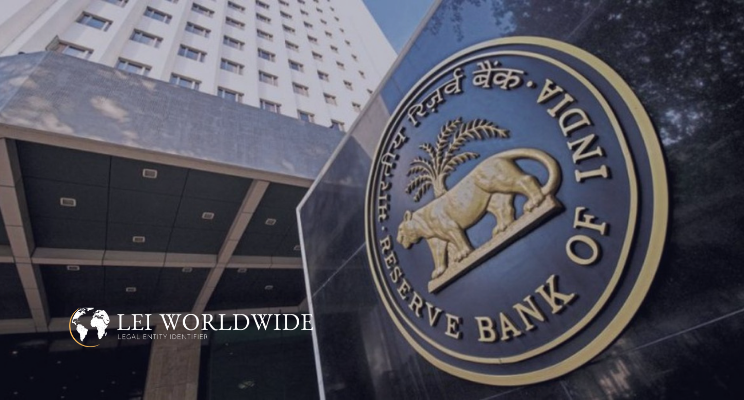LEI RBI GuidelinesThe LEI has been required in India since 2017 in order to increase market transparency and identify fraud in the financial transactions. All financial borrowers and lenders in India have been mandated to obtain an LEI. According to the RBI (Reserve Bank of India) the LEI has been introduced in a phased approach for market participants in the over the counter (OTC) derivative and non-derivative markets as also for large corporate borrowers.
The LEI in India has also been introduced for all payments/transactions of value ₹50 crore and above undertaken by organisations/corporates using Reserve Bank-run Centralised Payment Systems viz. Real Time Gross Settlement (RTGS) and National Electronic Funds Transfer (NEFT). The RBI states that its members should prepare for the phased rollout of the LEI, in particular those who engage in large value transactions (+₹50 crore) and those who use payment messages such as NEFTS & RTGS. RTGS: The LEI shall be reported in the ‘Remittance information’ field. NEFTS: For outward debit messages, LEI information shall be provided in ‘Sender to Receiver Information’ field. Companies in India may apply for a Legal Entity Identifier through an agent such as LEI Worldwide. Existing LEI codes may be transferred to LEI Worldwide for management and maintenance. You can find more information from the RBI on their dedicated webpage notification here: https://www.rbi.org.in/Scripts/NotificationUser.aspx?Id=12010&Mode=0 Please click Register LEI in India below to obtain a new LEI, or click Transfer LEI to begin to move your existing LEI to LEI Worldwide.
0 Comments
Your comment will be posted after it is approved.
Leave a Reply. |
LEI WorldwideThe views expressed in this blog belong to LEI Worldwide. Archives
April 2022
Categories |
Facilitating the global allocation of LEI numbers.
LEI Worldwide facilitate entity identification in the global financial system, capital markets and private sector. We make the process accessible and simple for Legal Entities to obtain Legal Entity Identifier numbers. By doing this we help facilitate the global allocation of LEI numbers. It is our mission to be the one point of contact globally between Legal Entities & LOU’s and ensuring the LEI becomes the Worlds most important identifier.
Services |
Company |
|
UNITED STATES | DUBAI | GERMANY | NETHERLANDS | UNITED KINGDOM | AUSTRALIA | BRAZIL | CANADA | FRANCE | SPAIN | HONG KONG | CHINA | INDIA | ITALY | SWEDEN | BVI | MALTA | UNITED ARAB EMIRATES | MEXICO LUXEMBOURG | SOUTH AFRICA | BELGIUM | SINGAPORE | JAPAN | MAURITIUS | CAYMAN ISLANDS | TURKEY | PORTUGAL | PANAMA | DENMARK | CYPRUS | KENYA | IRELAND | NEW ZEALAND | GREECE | SEYCHELLES



 RSS Feed
RSS Feed









